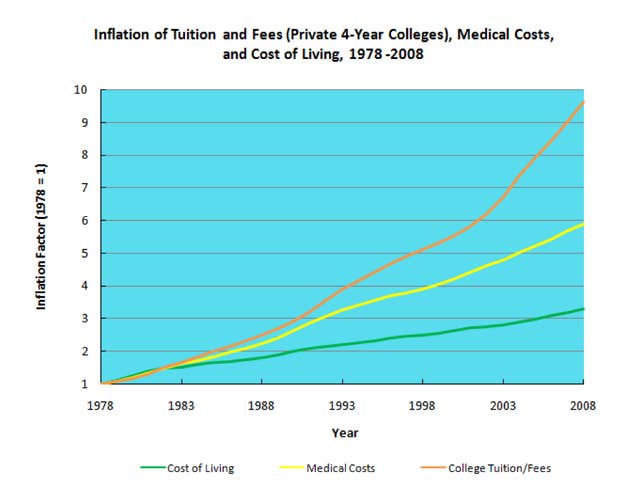Stark Differences Between 06-08 Grads & 09-11 Grads

College Tuition Has Steadily Outpaced Inflation And Other Rising Markets For Decades

Bachelor's holders, like everyone else, have suffered from much worse joblessness than normal during the recovery. Today, they're still facing 4.1 percent unemployment, well above pre-recession levels.

What Is It's Impact On Debt?
College graduates typically earn more than non-college graduates over their lifetimes, yet the average 30-year-old who earned a bachelor's degree in 2004 is most likely ineligible today for a home mortgage because of a high debt-to-income ratio."Denied? The Impact of Student Debt On the Ability to Buy a Home," a report released by Young Invincibles, a Washington, D.C.-based organization, concludes that today's college graduates are worse off financially than previous generations.
Why The Rise? What Does The Future Hold?
So what gives? As far back as 1993, experts were observing that tuition was rising so fast because parents were willing to swallow the cost. More recently, a U.S. News & World Report story from 2009 argued that prices were ballooning at elite universities because they’re all in a bidding war for top faculty and better services for students. That competition for students has also forced schools to hand out bigger and bigger scholarships, raising the sticker price of education. Meanwhile, Ronald Ehrenberg, a labor economist at Cornell, has blamed “the shared system of governance between trustees, administrators, and faculty” at many private universities, which “guarantees that selective private institutions will be slow to react to cost pressures.” Whatever the reason, those tuition trends don’t seem to be slowing anytime soon.
Hope In Sight


